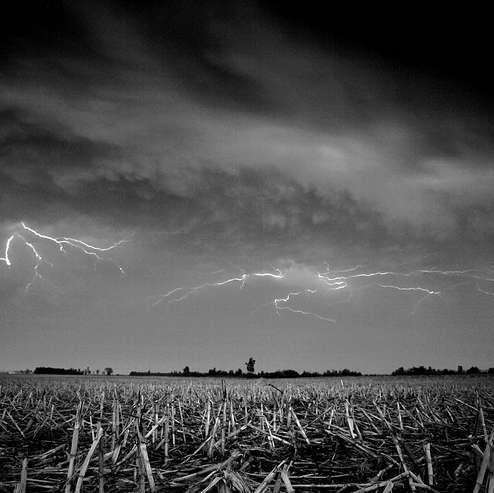FWP:
Beyond the obviously enjoyable 'Want to hear how unlucky I am?' effect, with all its rueful wit and wry humor, there's more going on. We don't know whether the cloud ever does bring rain during any of these 'hundred times', or always just passes over the field without effect, or whether the 'hundred times' are just a hyperbolic bit of rhetoric. We also don't know whether the cloud has any intention of ever bringing rain to the field, or of sending down lightning on it, since the syntax of the verse leaves plenty of room for error on the speaker's part.
For after all, he's said 'I consider' [samajhtaa huu;N], which not only admits the possibility of error, but is elsewhere deliberately used for consciously imposed metaphors, as in {111,6}. Thus it's possible that the gloom and doom is only in the speaker's mind, and the cloud is just rolling around as clouds do, often so frustratingly, before finally settling down and turning into the monsoon.
What a complex position that puts the speaker in! Everybody longs for the clouds to come, bringing rain; but if the clouds come to him, even possibly 'a hundred times', he's not the slightest bit interested in whether they bring rain or not; in fact he doesn't even bother to tell us whether they do or don't.
He's only obsessed with the idea that they're planning to bring lightning and burn down his harvest. If the crop hasn't even grown yet, so that the harvest isn't even in the field, that only proves the clouds are spying on him in advance, marking their prey! He sounds wildly paranoid-- but then, as we know, paranoids have enemies too.
For further discussion see {10,6},
which lists a cluster of especially relevant lightning-and-harvest verses.

Nazm:
That is, before success comes, the equipment for failure appears. (129)
== Nazm page 129